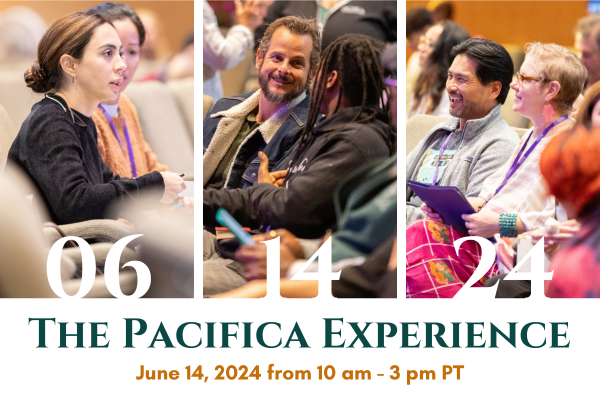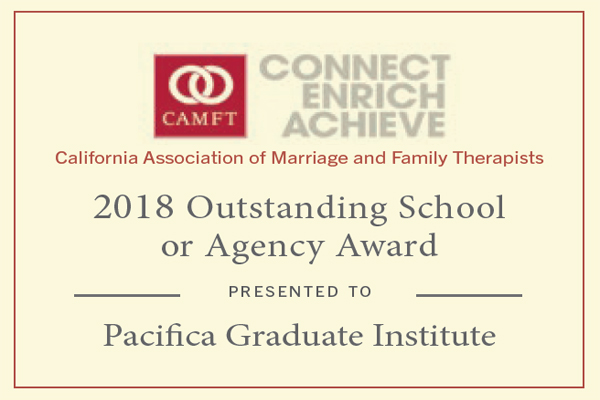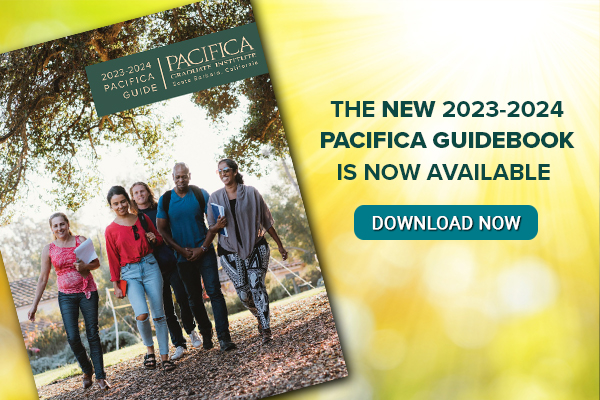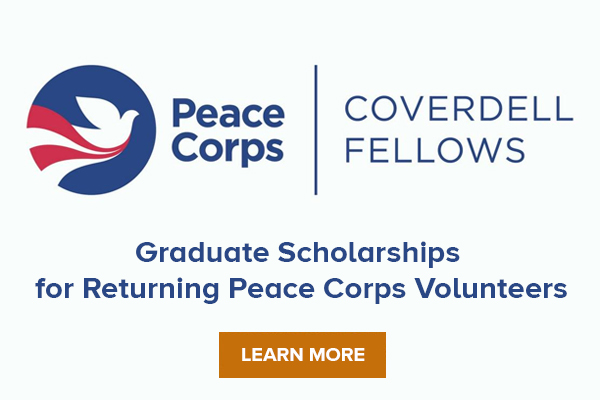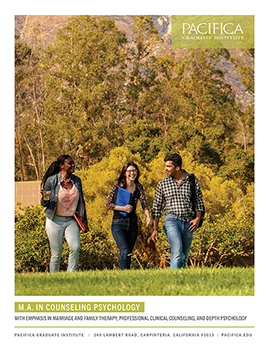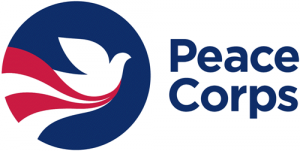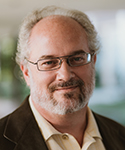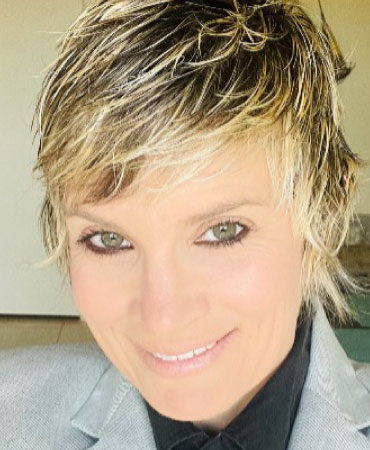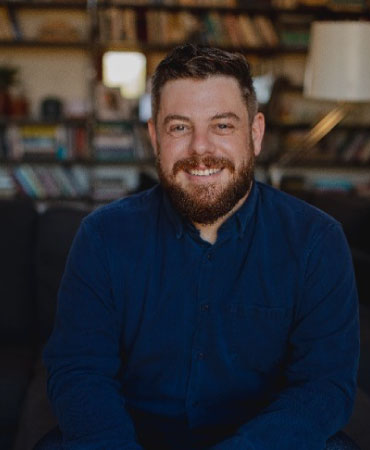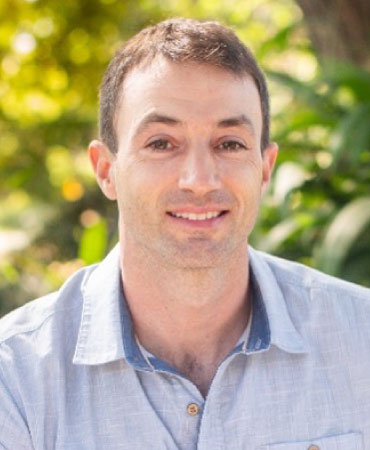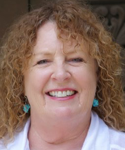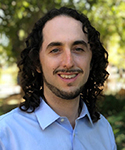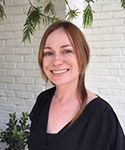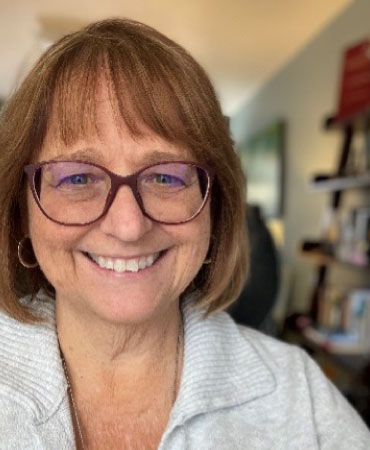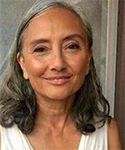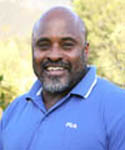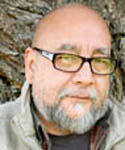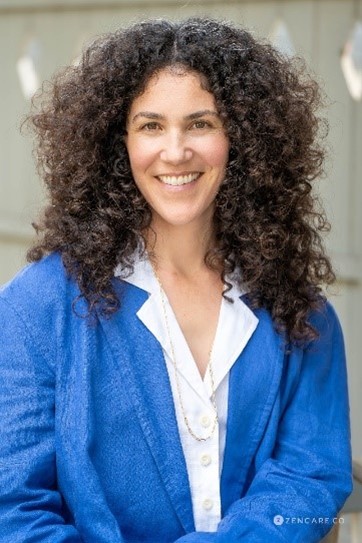Counseling Psychology
Now Accepting Applications for Fall 2024
Dedicated to offering students unique and evidenced-based comprehensive training in the art of marriage, family, and individual psychotherapy and professional clinical counseling with an appreciation for the systemic and immeasurable dimensions of the psyche.
Request More InformationMasters in Counseling Psychology
About Counseling Psychology
“Pacifica’s Masters Program in Counseling Psychology integrated a structured academic and experiential program with my own career and personal development goals. The emphasis on depth psychology not only afforded me a paid traineeship, but immediately upon graduation, I was offered employment at several theraputic agencies and private offices where I am furthering my career as a Marriage and Family Therapist. I am proud that the education I received at Pacifica is helping me make a difference in the world.”
Program Benefits
Students in the M.A. Counseling Psychology Program learn to:
- Be proficient in theoretical orientations that offer perspective and provide meaning to systemic patterns and human behavior.
- Demonstrate process and clinical skills, both face-to-face and telehealth.
- Identify underlying psychological and systemic dynamics of human interaction.
- Determine and implement effective interventions and evidence-based treatment plans while demonstrating knowledge of Family Systems theories.
- Apply understanding to case conceptualization assessment and treatment in clinical practice.
- Enhance client functioning and well-being via multi-culturally sensitive referrals and collaborative treatment team consultations.
- Understand individual, systemic, community, political, and biologic aspects of diversity and demonstrate knowledge and respect for diversity.
- Assess, diagnose, and treat the symptoms and characteristics of behavioral addictions, substance use, and dependence.
- Be knowledgeable, understand, and apply evidence-based assessment procedures to client cases and demonstrate awareness of community mental health and diversity-related considerations.
- Apply current legal and ethical standards and guidelines while working with diverse populations and demonstrate their knowledge and application in scholarly work and supervised practicum as they pertain to marriage and family therapy and professional clinical counseling.
- Identify and integrate systemic depth psychological perspectives of human interaction and demonstrate competence in the field of marriage and family therapy and professional clinical counseling.
- Demonstrate an evolving capacity to self-assess and articulate one’s own strengths.
“Attending Pacifica has been a powerful experience for me. The once-a-month weekend ‘retreats’ allow me to form meaningful and genuine relationships with fellow students, while gaining effective counseling skills from the extremely knowledgeable professors. I appreciate being around people who are dedicatd to personal growth, following their passions, and helping others. I look forward to having many life-changing and transformative experiences at Pacifica.”
Scholarships
The Education Assistance Scholarship is sponsored by Pacifica Graduate Institute and offered to new and returning students based on extreme financial hardship and strong academic excellence. Awards are made annually at the beginning of each academic year. The award is $1,000 to be equally divided over the academic year. For students in the Masters in Counseling Psychology Program, enrolled in the 3rd year, the award is $500. This scholarship is not renewable and students must apply each academic year.
The Founders Scholarship is sponsored by Pacifica Graduate Institute and offered to newly admitted students entering the Masters in Counseling Psychology Program based on extreme financial hardship and strong academic excellence. The Founders Scholarship will be awarded to 4 students in the amount of $4,000 and is renewable provided recipients meet the required 3.5 cumulative grade point average. Yellow Ribbon Matching Scholarship Pacifica Graduate Institute is pleased to announce that we have entered into an agreement with the Veteran’s Administration in support of veterans continuing their education under the Post 9/11 GI Bill. Pacifica has agreed to provide up to ten Yellow Ribbon Scholarships each year for qualifying veterans under the Post 9/11 GI Bill on a first-come first-serve basis. Students in the M.A. Counseling program will qualify for up to $6,500 per year, M.A. Engaged Humanities and Creative Life will qualify for up to $5,400 per year, and those in the doctoral programs will qualify for up to $7,800 per year.Chair & Faculty
Faculty members of Pacifica’s Counseling Psychology Department bring a passion for depth psychologically focused education and a wealth of broad, real-world experience into the classroom. Comprised of licensed marriage and family therapists, professional clinical counselors, psychologists, social workers, Jungian analysts, and arts-and movement-centered psychotherapists, the Counseling Psychology Department’s faculty are dedicated to working with adult learners who are prepared to help change the world as helping professionals.
Request Information
Learn MoreProgram FAQs
Does a student need to have a B.A. in psychology or extensive background in psychology to qualify for admission to this M.A. program?
A bachelor’s degree from a regionally accredited institution or a state-approved institution is required to enroll. While we encourage students with a psychology background to apply, students with a variety of educational backgrounds may be considered for admission to the Masters in Counseling Psychology Program. Given our interdisciplinary approach, previous background or readings in the fields of depth psychology, mythology, literature, religion, and art are of significance in enhancing a student’s experience in the program.
Does receiving the M.A. degree from Pacifica qualify a student to meet the academic requirements to sit for the Marriage and Family Therapist (MFT) licensing exams?
Yes. The coursework in the M.A. Counseling Psychology Program meets the educational requirements for licensure as a Marriage and Family Therapist in California. After completing a master’s degree from Pacifica, one must meet the BBS internship and examination requirements in order to apply for the California Marriage and Family Therapist license (LMFT). Please see the Board of Behavioral Sciences website at www.bbs.ca.gov for further information about licensing requirements. Applicants from other states are strongly encouraged to obtain licensing information and requirements from the licensing board of their particular state since requirements vary from state to state.
Does receiving the M.A. degree from Pacifica qualify a student to meet the academic requirements to sit for the Licensed Professional Counselor (LPC)?
Yes. The coursework from the Counseling Psychology program is designed to meet the educational requirements for licensure as a Licensed Professional Clinical Counselor (LPCC) in California. In order to become licensed as an LPCC in California, one must meet the BBS internship and examination requirements after completing the Master’s degree. Please see the Board of Behavioral Sciences website at www.bbs.ca.gov. Applicants from other states are strongly encouraged to obtain licensing information and requirements from the licensing board of their particular state since requirements vary from state to state.
How long is this master's program and how is it structured?
Students attend classes in this program for 2.5 years or 10 quarters (see curriculum overview). The schedule consists of nine three-day sessions and a seven-day summer session each year, during the first two years and six three-day sessions in the final year. Classes meet from approximately 9:00am to 9:00pm during the first two days of each session and from 8:30am-4:30pm on day 3.
What are the supervised practicum requirements for graduation?
Students must complete a minimum of 300 hours, including at least 280 direct service hours, in a supervised practicum in their home community. Students may begin their supervised practicum after successfully completing the first year spring quarter courses, and after all site documentation has been submitted and approved by the Program’s Clinical Practicum Department.
What expenses, beyond tuition and residential costs, should I consider?
Students will want to factor into their school budget expenses for books, personal psychotherapy, and a thesis editor. Generally, students allow at least $2,000 per year for personal therapy, and approximately $600-$1,200 for a thesis editor, depending on the student’s writing abilities and level of editing assistance needed.
How much work is required outside of class?
Class assignments consist of readings, discussion posts, papers, and/ or projects. In the first year, students study approximately 20-25 hours per week depending on individual learning styles. In the second year, students study approximately 30 hours per week, which includes an average of 10 hours spent at a supervised practicum site. Some online course work will also be required.
Curriculum Overview
When students begin their studies at Pacifica Graduate Institute, they join a cohort of like-minded students who are also enrolling in that particular degree program. The majority of students remain with the same cohort throughout their academic journey. A very real sense of community is soon established as students collaborate within their cohorts and share the intense experiences that are part of graduate-level work at Pacifica. Close personal and professional bonds are formed, often lasting long after studies are completed and extending into graduates’ new careers.
Masters in Counseling Psychology classes take place in three-day sessions approximately once each month during fall, winter, and spring. There is also a seven-day summer session each of the first two years. The program enrolls students every fall.
First Year
- Human Growth and Development - CP 520, 2 units
- Geropsychology and Long Term Care - CP 526, 1 unit
- Ethics and the Law: Child Abuse Assessment and Treatment - CP 525, 1 unit
- Depth Psychology Theory and Practice I: Analytical Psychology - CP 541, 2 units
- Counseling Skills: Process of Psychotherapy II - CP 516, 3 units
- Professional Skills Development I.B - CP 566, .25 units
- Psychopathology - CP 502, 4.5 units
- Family Systems and Domestic Violence - CP 605, 1.5 unit
- Depth Psychology Theory and Practice II: Imaginal/Archetypal Psychology - CP 542R, 1.5 unit
- Counseling Skills: Process of Psychotherapy III - CP 517, 3 units
- Professional Skills Development I.C - CP 567, .25 units
Second Year
- Clinical Practice I - CP 610, 3 units
- Child Psychotherapy - CP 532, 1.5 unit
- Counseling in Substance Use Disorders, Co-occurring Disorders and Behavioral Addictions I - CP 660A, 3 units
- Community Mental Health Counseling I - CP 607A, 3 units
- Seminar in Directed Research I.A. - CP 650A, .3 units
- Professional Skills Development II.A. - CP 665, .2 units
- Clinical Practice II - CP 611, 3 units
- Marriage, Family, and Relationship Counseling I - CP 601, 3 units
- Depth Psychology Theory and Practice III: Psychoanalytic Psychotherapy - CP 543R, 1 unit
- Psychological Assessment I - CP 630A, 2.5 units
- Seminar in Directed Research I.B. - CP 650B, .45 units
- Professional Skills Development II.B. - CP 666, .25 units
- Clinical Practice III - CP 612, 3 units
- Counseling in Substance Use Disorders, Co-occurring Disorders and Behavioral Addictions II - CP 660B, 1.5 unit
- Marriage, Family, and Relationship Counseling II - CP 602, 3 units
- Community Mental Health Counseling II - CP 607B, 1.5 unit
- Seminar in Directed Research I.C. - CP 650C, .3 units
- Professional Skills Development II.C. - CP 667, .25 units
- Seminar in Directed Research II.A. - CP 651A, .75 units
- Advanced Theories and Techniques: Human Sexuality - CP 522, 1 unit
- Psychological Assessment II - CP 630B, 2 units
- Depth Psychology Theory and Practice IV: Attachment and Trauma - CP 544R, 1 unit
- Group Counseling Theories and Techniques II - CP 528, 2 units
- Clinical Practice IV - CP 613, 1 unit
- Professional Skills Development II.D. - CP 668, .25 units
Third Year
- Psychopharmacology II - CP 670B, 2.5 units
- Career Development II - CP 608B, 3.75 units
- Depth Psychology Theory and Practice VI: Somatic Psychotherapy - CP 546, 1 unit
- Seminar in Directed Research II.C. - CP 651C, 1 unit
- Group Counseling Theories and Techniques III - CP 529, 1 unit
- Clinical Practice VI - CP 615, 1 unit
Requirements For Graduation
Degree Requirements for Graduation
Two comprehensive examinations and a master’s thesis are to be completed in partial fulfillment of degree requirements. Students work closely with the instructors of Clinical Practice and Directed Research courses during the second year of the program in preparation for the comprehensive examinations and master’s thesis processes. For a full description of all requirements, consult the current edition of the Pacifica Student Handbook. The curriculum content areas required by the Board of Behavioral Sciences in the State of California are covered by the following Counseling Psychology Program courses. Each student is responsible for determining and remaining informed of licensure requirements in their own state.Preparation for California Marriage and Family Therapy Licensure
The Counseling Psychology Program meets the requirements of the California Board of Behavioral Sciences, Senate Bill 33, Section 4980.36 of the Business and Professional Code. Applied Psychotherapeutic Techniques of Marriage and Family Therapy- CP 610, 611, 612, 613, 614, 615, Clinical Practice I, II, III, IV, V, VI
- CP 530 Multicultural Counseling Theories and Techniques
- CP 511 Cultural Psychology
- CP 515, 516, 517 Counseling Skills: Process of Psychotherapy I, II, III
- CP 520 Human Growth and Development
- CP 522 Advanced Theories and Techniques: Human Sexuality
- CP 526 Geropsychology and Long Term Care
- CP 605, Family Systems and Domestic Violence
- CP 630 A, B Psychological Assessment I, II
- CP 502 Psychopathology
- CP 620 Research in Psychology
- CP 650 A, B, C, Seminar in Directed Research I, A, B, C
- CP 651 A,B, C, Seminar in Directed Research II, A, B, C
- CP 601, 602 Marriage, Family, and Relationship Counseling I, II
- CP 527, 528, 529 Group Counseling Theories and Techniques I, II, III
- CP 501 Counseling and Psychotherapeutic Theories and Techniques
- CP 532 Child Psychotherapy
- CP 660 A, B Counseling in Substance Use Disorders
- Co-occurring Disorders and Behavioral Additions I
- Co-occurring Disorders and Behavioral Additions II
- CP 670 A, B Psychopharmacology I, II
- CP 523 Professional Orientation: Ethics and the Law
- CP 525 Ethics and the Law: Child Abuse Assessment and Treatment
- CP 607 A, B Community Mental Health Counseling I,II
Preparation for California Professional Clinical Counselor Licensure
The Counseling Psychology Program meets the requirements of the California Board of Behavioral Sciences, Senate Bill 788, Section 4999.33 of the Business and Professional Code. Core Courses- CP 501 Counseling and Psychotherapeutic Theories and Techniques
- CP 534 Introduction to the Theories of the Depth Tradition
- CP 520 Human Growth and Development
- CP 532 Child Psychotherapy
- CP 526 Geropsychology and Long Term Care
- CP 608 A, B Career Development I, II
- CP 527, 528, 529 Group Counseling Theories and Techniques I, II, III
- CP 630 A, B Psychological Assessment I, II
- CP 530 Multicultural Counseling Theories and Techniques
- CP 511 Cultural Psychology
- CP 502 Psychopathology
- CP 620 Research in Psychology
- CP 650 A, B, C Seminar in Directed Research I. A, B, C
- CP 651 A, B, C Seminar in Directed Research II: A, B, C
- CP 523 Professional Orientation, Ethics, and Law in Counseling
- CP 525 Ethics and the Law: Child Abuse, Assessment, and Reporting
- CP 670 A, B Psychopharmacology I, II
- CP 660 A, B Counseling in Substance Use Disorders, Co-occuring Disorders in Behavioral Addictions, I, II
- CP 607 A, B Community Mental Health Counseling I, II
- CP 522 Advanced Theories and Techniques: Human Sexuality
- CP 605 Family Systems and Domestic Violence
- CP 565, 566, 567, 568 Professional Skills Development I: A, B, C, D
- CP 665, 666, 667, 668 Professional Skills Development II: A, B, C, D
- CP 515, 516, 517 Counseling Skills: Process of Psychotherapy I, II, III
- CP 601, 602 Marriage, Family, and Relationship Counseling I, II
- CP 541 Depth Psychology Theory and Practice I: Analytical Psychology
- CP 542A Depth Psychology Theory and Practice IIA: Imaginal and Archetypal Psychology A
- CP 542B Depth Psychology Theory and Practice IIB: Imaginal and Archetypal Psychology B
- CP 543 Depth Psychology Theory and Practice III: Archetypal Symbols and Dynamics in Psychotherapy A
- CP 545 Depth Psychology Theory and Practice V: Archetypal Symbols and Dynamics in Psychotherapy B
- CP 546 Depth Psychology Theory and Practice VI: Somatic Psychotherapy
- CP 610, 611, 612, 613, 614, 615 Clinical Practice I, II, III, IV, V, VI
Degree Requirements – Requirements for Graduation
- Each student must complete a total of 93 quarter units in order to fulfill the unit requirement for graduation.
- A minimum grade of C is required in each completed course. A cumulative grade point average of 3.0 must be maintained.
- Students must meet attendance requirements as articulated in the Student Handbook.
- Students must complete a Master’s Thesis accepted by the faculty and published on ProQuest.
- Students must complete a minimum of a 300-hour practicum, including a minimum of 280 direct service hours.
- Students must participate in 50 hours of personal psychotherapy, inclusive of a minimum of 5 hours each quarter during the 10 quarters of the program.
- Students must pass the Comprehensive Oral Examination in the Spring Quarter of the second year, and the Comprehensive Written Clinical Vignette Examination in the Winter Quarter of the third year.
First Year Assessment During the spring quarter of the students’ first year, the faculty will assess each student’s progress in process skills and readiness to begin a clinical practicum. The result of this assessment may include:
- Endorsement of the student’s progress as satisfactory.
- Endorsement with reservation and recommendations.
- Recommendation that the student discontinues the program.
Practicum Requirement During the second year of study, students are required to be actively engaged in a supervised practicum experience, approved by the Program, in order to be eligible to sit for Pacifica’s Comprehensive Examinations. Students may complete the supervised practicum as a trainee at a community counseling center, social service agency, hospital, or other approved facility. The Program’s Clinical Practicum Department provides practicum guidelines and consultations for students as they select supervised practicum sites in their home settings. The choice of a culturally diverse site is encouraged.
Enroll Today
Apply NowFor Program Goals in the M.A. in Counseling Psychology with an emphasis in Marriage and Family Therapy, Professional Clinical Counseling, and Depth Psychology program, see this PDF.

